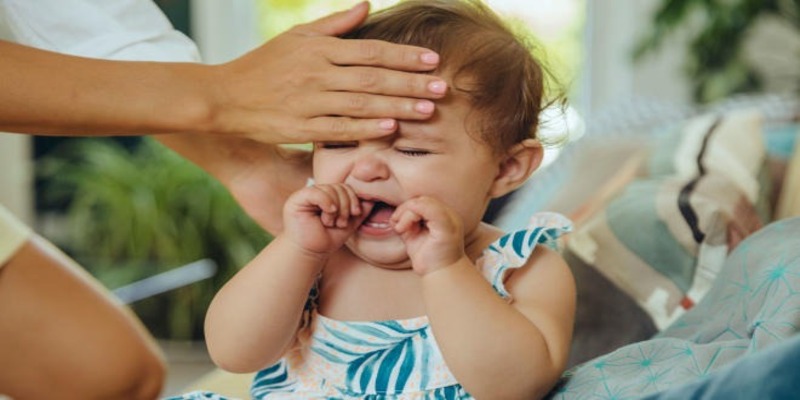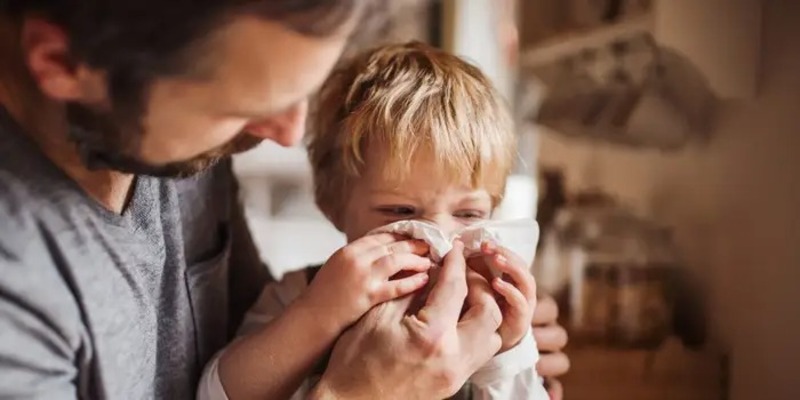Symptoms of pneumonia include fever, cough, and fluid or pus accumulating in the lungs. Pneumonia comes in a wide variety of forms, each with its own set of symptoms and potential complications.
The contagiousness of a certain case of pneumonia can also be determined by its particular subtype. Some strains of pneumonia can be spread from person to person. We reached out to a few specialists in infectious diseases to learn more about the categories above and the precautions that should be taken to prevent contracting them.
Pneumonia: A Brief Explanation

Pneumonia is an infection of the lungs. The alveoli, or lung air sacs, get infected with fluid or pus due to pneumonia. Coughing with or without mucus, fever, chills, and difficulty breathing are only some unpleasant side effects.
Sometimes lethal, pneumonia may be a very serious illness. "Pneumonia may kill you," a family medicine doctor at Santa Monica, California's Providence Saint John's Health Center told Health. At one time, it was among the leading killers in the United States and elsewhere.
This Pneumonia Is Highly Contagious
There are infectious strains of pneumonia. Pneumonia can be caused by a bacterial, viral, or fungal infection at its most fundamental level. There is no transmission of infection when it comes to fungal pneumonia.
According to the ALA, those with weakened immune systems are more likely to get fungal pneumonia after exposure to high concentrations of the fungus responsible for the disease, which can be found in soil or bird poop.
Pneumonia transmission occurs mostly between bacteria and viruses (i.e., passed from person to person). Despite their similarities, bacterial and viral pneumonia are distinct diseases with unique symptoms and treatments.
Pneumonia Induced by Bacteria
In adults, bacteria are a leading cause of pneumonia, according to the National Heart, Lung, and Blood Institute. However, while many other bacterial species are capable of causing bacterial pneumonia, Streptococcus pneumonia is by far the most common cause in the United States.
Mycoplasma pneumoniae and Legionella can also cause bacterial pneumonia. Experts in pulmonary critical care say that while bacterial pneumonia can occur independently, "it can also develop as a secondary infection after having a cold or flu."
Pneumonia Infected With Virus

According to the National Heart, Lung, and Blood Institute, viral pneumonia can develop when viruses enter your airways and lungs, such as the influenza virus (which causes the flu) or the rhinovirus (which causes the common cold).
One of the leading viral causes of pneumonia in children is the respiratory syncytial virus (RSV). However, the common cold and the flu aren't the only viral infections that can lead to pneumonia.
The COVID-19 virus, caused by SARS-CoV-2, can also lead to pneumonia. "Viral pneumonia is more infectious than bacterial pneumonia," Therefore, it's crucial to take measures like wearing a mask and washing your hands often if you're near someone with viral pneumonia.
The Probability of Contracting Pneumonia
Whether bacterial or viral, pneumonia can be transferred in some ways, including through direct contact with contaminated bodily fluids (such as uncovered coughing or sneezing), shared eating and drinking utensils, and the handling of diseased tissues. Most of these cases represent community-acquired pneumonia, which the CDC defines as pneumonia contracted while living in a community.
Prevention
If your doctor gives the go-ahead, you may greatly reduce your risk by being vaccinated.
Influenza vaccination
Since influenza puts you at risk for developing a secondary illness, "the flu vaccination is really efficient at avoiding bacterial pneumonia."
Pneumococcal vaccines
The pneumococcal conjugate vaccine (PCV13) and the pneumococcal polysaccharide vaccine are available to protect against pneumococcus infections. This bacterium is the leading cause of pneumonia in the United States (PPSV23). These are prescribed to the elderly, those with long-term illnesses, and smokers. "The available vaccinations work quite well,"
Hib vaccination
The bacterium Haemophilus type b, sometimes known as "Hib," is a leading cause of pneumonia and encephalitis in young children. In the United States, it's given to newborns as early as two months old and is strongly advised for all children under the age of five.
The COVID-19 immunization:
Although the vaccinations are relatively new, they have been shown to reduce the likelihood of developing an extreme version of the virus, which may cause major consequences, including pneumonia.
What Happens If I Get Pneumonia?
The severity of your pneumonia and its specific type will determine the course of treatment. One or both lobes of the lungs may be affected by pneumonia, or the disease may spread across the entire lung.
Antibiotics may be administered if your pneumonia is caused by a bacterial infection or the fluids that accumulate after aspiration become contaminated. Antifungal medicines are useful for treating fungal cases of pneumonia as well.

Here Are 8 Questions To Help You Get Started. Walking Can Be A Precious Opportunity To Reflect
Dec 27, 2023

The DASH Diet Is Successful. Exactly Why Hasn't This Trend Taken Off?
Dec 12, 2023

The 5-Move Stomach Workout You Can Do At Home To Build Core Strength
Oct 26, 2023

12 Tips For Walking In Winter
Jan 02, 2024

Unhealthy Foods For Fatigue
Feb 04, 2024

Do Lactic Acid Buildups Cause Post-Workout Muscle Soreness?
Feb 16, 2024

Preventing Eyelash Loss: Essential Tips for Healthier Lashes
Mar 12, 2024

Calories Content Of An Orange
Oct 23, 2023

These Cooking Errors Can Ruin Thanksgiving
Nov 20, 2023

Top Biotin Supplements for Healthier Hair in 2024
Jul 25, 2024

Effective Home Remedies for Treating Peeling Sunburn
Jul 24, 2024

What You Should Be Aware Of About Focal Hyperhidrosis
Nov 23, 2023